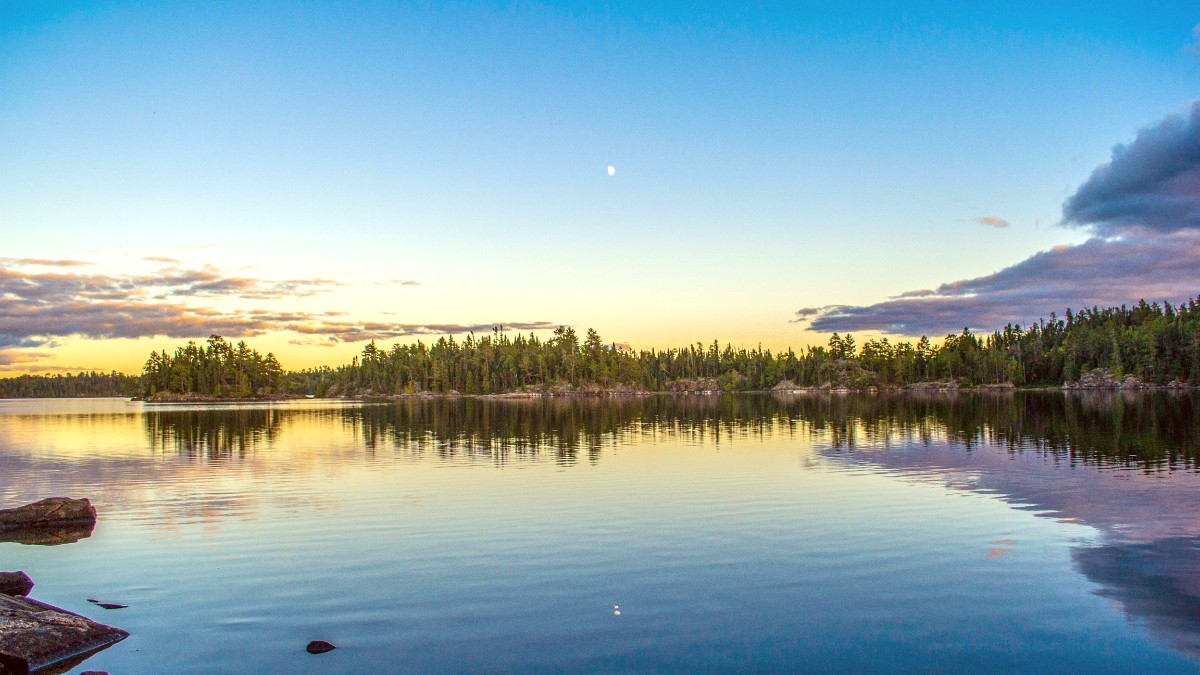
Minnesota, USA
Within the BWCAW, the "cuisine" speaks to resilience and efficiency. Modern wilderness cuisine prioritizes lightweight, high-energy, and shelf-stable ingredients.
The act of cooking over a camp stove or a permitted campfire becomes part of the wilderness experience, a simple pleasure after a day of paddling.
Dehydrated or freeze-dried meals (pasta, rice, beans, vegetables), fresh produce that travels well (carrots, apples), staple grains (oats, couscous), and protein sources (jerky, hard cheeses).
Oils, butter (clarified for longer life), and nuts add calories. Simple, hearty flavors dominate; spices, dried herbs, and bouillon cubes add taste.
Meal times are flexible: quick, high-energy breakfasts (oatmeal); simple lunches on the go (tortillas, trail mix); and the largest meal, dinner, prepared at camp (dehydrated meals, pasta dishes).
Minnesota's state fish, commonly pan-fried, broiled, or in a sandwich. Its mild, flaky white meat is a regional delicacy.
A delicious way to celebrate your return from the wilderness.
A creamy, hearty soup featuring wild rice, often with chicken or mushrooms. A Minnesota classic.
Comfort food after an adventure.
Local craft beers are popular. Look for homemade pies, especially berry pies in season, and locally made ice cream. Root beer is common in Ely.
Seek out seasonal treats and local brews.
Casual dining dominates, serving American comfort food, walleye, burgers, and sandwiches. True "fine dining" is rare.
Grocery stores in Ely and Grand Marais. International cuisine is very limited; most restaurants focus on American fare.
Within BWCAW: Possible with careful planning. Dehydrated meal brands have options. Outfitters may accommodate with notice. Self-cater using lentils, dried beans, pasta.
Within BWCAW: Pack certified gluten-free or allergen-free meals and snacks. Cross-contamination is a risk with shared cooking gear.
Extremely limited, especially within the wilderness. Self-catering with certified products brought from a larger city is necessary.
Communicate your needs clearly with your outfitter if you are using their food services. Early notice allows for better accommodation.
Specify all allergies and preferences.
For self-catering, research specialized wilderness food suppliers online before your trip. This helps ensure a steady supply of compatible meals.
Consider packing your own dedicated snacks and meals.
Limited formal options, but look for local farmers' markets.
Check local tourism calendars for gateway town seasonal events.
Preparing and eating a meal in a remote wilderness setting.
A treasured part of the BWCAW trip when fires are permitted.
Learn a few simple, high-calorie wilderness recipes before your trip. This helps you prepare delicious and efficient meals at camp.
Focus on minimal ingredients and cooking time.
Practice using your camp stove at home before your trip to understand its operation and fuel efficiency.
This reduces stress and saves time in the wilderness.
While formal classes are absent, experiencing the simple, hearty meals eaten over centuries of wilderness travel is a cultural immersion in itself. Eating fresh fish you caught brings an unique connection to the land.
Dining in gateway towns offers interactions with locals who share a deep connection to the wilderness. They often tell stories about the region and offer authentic Northwoods hospitality.
It connects you directly to the natural food source.
The satisfaction of a hot, flavorful meal prepared over a camp stove after a long day of paddling and portaging is an unique culinary reward.
Waking up to the serene sounds of nature and brewing fresh coffee over a small stove or campfire begins your day with tranquility.
The joy of wilderness cooking comes from its simplicity. Basic ingredients transform into satisfying meals with minimal equipment.
Focus on nourishing, easy-to-prepare food.
If campfire cooking is part of your plan, always check fire restrictions and use designated fire grates. Ensure the fire is completely extinguished before leaving.
Leave no trace of your fire.
Seasonal availability of local produce like berries and wild mushrooms sometimes influences restaurant menus in gateway towns.
The BWCAW fosters an ethos of self-reliance and appreciation for basic sustenance, making every meal a victory after a day in nature.
Plan your meal strategy well in advance for your BWCAW trip. This prevents unnecessary weight and ensures you have sufficient nourishment.